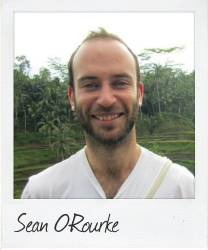"Local groups can influence climate change adaptation"
February 9th, 2012 A small local initiative in southern Australia is showing how communities can have a meaningful impact on climate change globally. Sean O’Rourke, 27, a Commonwealth Correspondent from Melbourne, reports.
A small local initiative in southern Australia is showing how communities can have a meaningful impact on climate change globally. Sean O’Rourke, 27, a Commonwealth Correspondent from Melbourne, reports.
An innovative new group based in Victoria, Australia, is looking at ways of addressing the inequitable impacts of climate change on developing nations in South East Asia.
Journeys for Climate Justice (JCJ) formed in 2010 with the aim of raising carbon offset donations to fund projects that would address some of these impacts.
Carbon offsetting is a mechanism through which activities that produce a pronounced contribution of CO2 into the atmosphere can be counterbalanced by funding activities that reduce CO2 pollution. A secondary aim of JCJ is to develop partnerships between people in Australia and the Asia Pacific Region to tackle climate change.
There are good reasons for doing this.
For every one metre of climate change-related sea level rise, close to 100 million people may be displaced. Coastal communities in developing nations will be particularly vulnerable. Indeed, if the worst predicted outcomes attributed to climate change become reality, low lying and dense cities in South East Asia will be particularly badly affected.
In 2011, JCJ used the money raised from carbon offsetting and fundraising to support a Sri Lankan organisation, ECO-V to run a 12 day journey along the Kelani River in Sri Lanka. The River Journey, as it became known, provided 20 young Sri Lankan volunteers with the opportunity to raise awareness of climate change adaptation and conservation in the communities along the Kelani River.
Not only was the River Journey successful in raising awareness, but has encouraged the 20 volunteers to continue their own climate change and conservation initiatives, which JCJ will support.
The success of the River Journey has shown that local groups like JCJ can have an influence on how climate change impacts upon different communities across the globe. In the year ahead JCJ will be supporting the Sri Lankan volunteers in their projects and scoping out new projects.
For more information on JCJ, please check the link below. http://www.journeysforclimatejustice.org.au/
…………………………………………………………………………………………………………………
About me:
“I live and work in Melbourne, Australia. I am working at VicHealth full time at the moment, on a project that looks at the impact of bottle shops on alcohol-related harm more generally.
“I am studying part time, completing my Masters in Policy and Human Service at RMIT. I also recently completed training by the Climate Project in Indonesia, with training provided by former US vice president Al Gore.”
…………………………………………………………………………………………………………………
Opinions expressed in this article are those of the author and do not necessarily represent the views of the Commonwealth Youth Programme. Articles are published in a spirit of dialogue, respect and understanding. If you disagree, why not submit a response?
To learn more about becoming a Commonwealth Correspondent please visit: http://www.yourcommonwealth.org/submit-articles/commonwealthcorrespondents/
.



